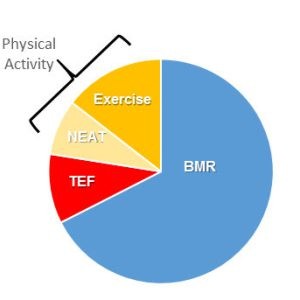Weight loss is an interesting topic these days. For some, bringing up the topics of keto, intermittent fasting, plant-based or some other popular nutritional topic of the day leads to heated discussions. Unfortunately, some conversations are prefaced with 'I believe...' and then whatever nutritional opinion follows. Emotions can become so strong with nutrition that facts and evidence get thrown out the window. And positions can be maintained as though defending a religious perspective. When discussing weight loss there are two predominant positions popping up on social media. One supposes that creating a caloric deficit is all that matters. You can eat fast food every day as long as you are eating fewer calories than you burn in a day. This ignores what the other position claims is vital, which is the quality of the nutrition. Maybe you've heard the expression 'as long as it fits your macros' to justify eating certain foods. By macros we're referring to the macronutrients i.e. proteins, carbs and fats. The truth is that both sides are correct. It matters how much you eat. A caloric deficit is needed to achieve weight loss. And the quality of the matters as well. You cannot achieve healthy weight loss with low quality nutrition.. But there's one more piece to the puzzle that typically tends to get ignored. And that's the timing of our nutrition. In other words, would you expect eating the same foods in the same amounts at different times to have an impact on our weight loss efforts? For example, if you ate a 2070 calorie breakfast, a 600 calorie lunch and a 330 calorie dinner... Would this have any difference on our fat loss efforts than if we ate the following: 330 calorie breakfast, 600 calorie lunch, 2070 calorie dinner. The answer is that it does...
